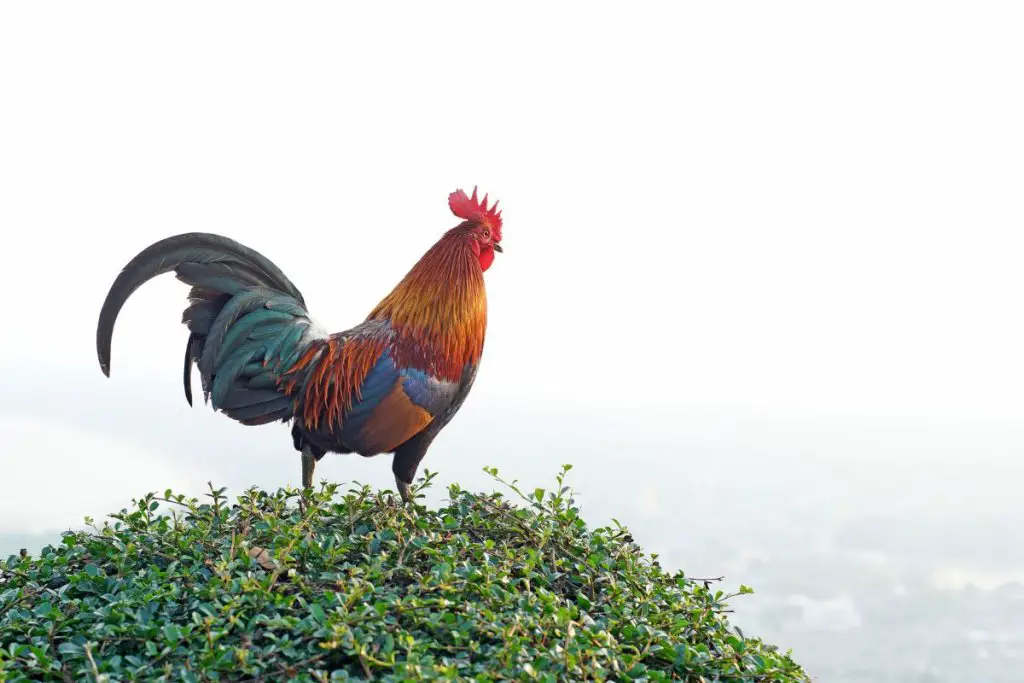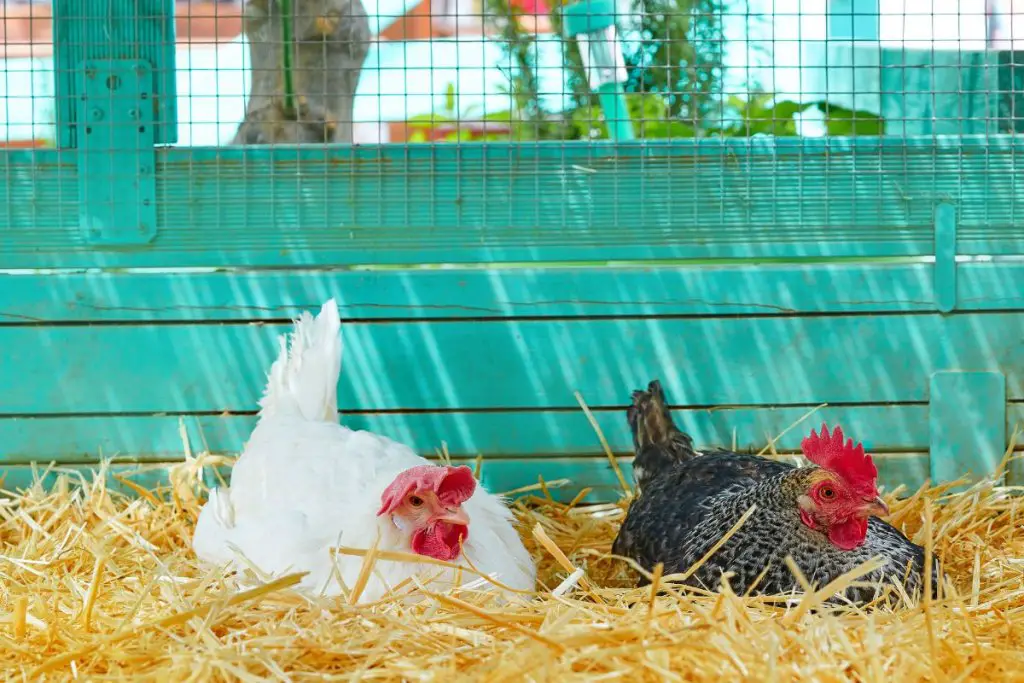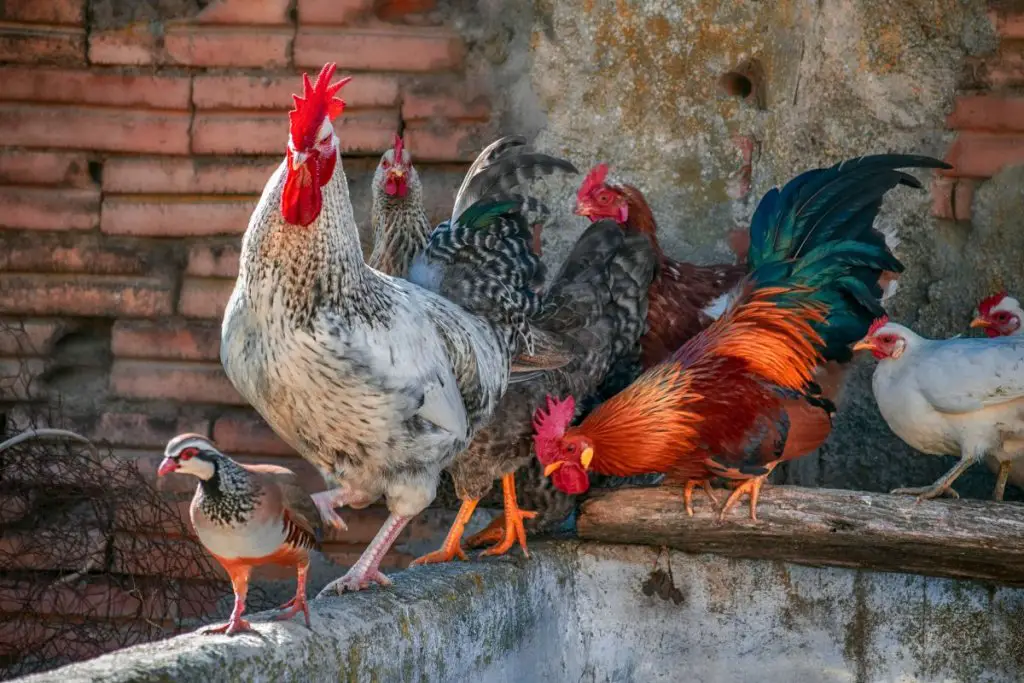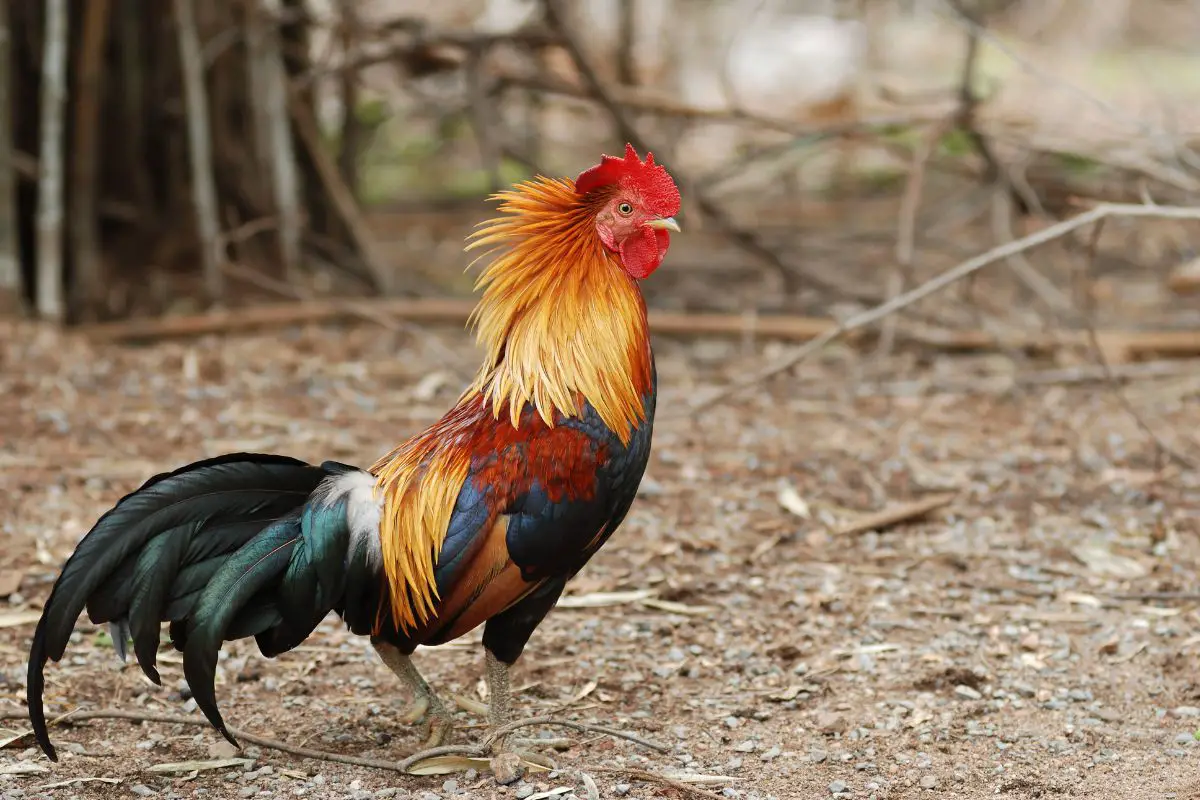There is absolutely no need for rooster if you want eggs for your dinner table as hens will lay eggs without fertilization. However, you'll definitely need a rooster if you desire to breed baby chicks and grow your backyard flock.
Chicken owners who are new to owning hens often have several questions about egg laying – especially if they are interested in having their backyard flock working on producing delicious fresh eggs.
A common question that is asked is whether you need a rooster for hens to lay eggs.
In this article, we will discuss what purpose roosters serve, and how to optimize egg production by explaining the process of how hens lay eggs, and what you can do to help your girls achieve their maximum potential.
We will also discuss the benefits of having a rooster, and some of the pitfalls involved when adding a rooster to your flock of laying hens.
Table of Contents
What is the Purpose of a Rooster?
Roosters are male chickens and their primary purpose is to spread their seed by fathering their own chicks through mating with female chickens. Roosters are larger than hens, with larger wattles and combs, and typically have longer and more colorful tail feathers, with which to attract hens.
A rooster serves as protection over the flock by watching out for predators, and if necessary, fighting with his life to protect his ladies.

Roosters also break up fights amongst hens that get out of hand – particularly when the hens are deciding upon a pecking order, which is done to keep their social hierarchy harmonious so they can all live together without fights breaking out over resources.
Some people use a rooster as an alarm clock – but that is not his primary function, and your neighbors may not appreciate your rooster crowing at dawn. So it may be a good idea to understand any city ordinances before adding a rooster to your flock.
Do you Need a Rooster to get Baby Chicks?
If you want to breed your hens, you will need a rooster to get fertilized eggs. Eggs that are fertilized will produce baby chicks!
Roosters fertilize hens by mating with them. A pullet (young female hen) must have reached the point of lay to be capable of laying unfertilized eggs prior to producing fertilized eggs.
Female chickens lay eggs when they are healthy and happy, and have reached the age when their oviduct is large enough to pass an egg. The point of lay depends on the chicken breed but typically occurs around 22 weeks.
Can Hens Lay Eggs Without a Rooster?
If you have a backyard chicken flock and are looking to have egg-laying chickens, you can do so without having a rooster. Hens will produce eggs for the table without fertilization.
If you don’t want to have a rooster, you will need to watch over your flock and ensure that you set up your chicken coop to help support your hens, providing them with everything they need to produce eggs.
How to Help Your Hens Produce Eggs
One of the ways you can support your hens is providing high-quality chicken feed with a high protein content, and adding calcium by offering oyster shells or eggshells to help supplement their diets.
You will want to ensure you are keeping your hens hydrated with plenty of fresh water, and ensuring they have appropriate shelter (cool/shady areas in summer, and warm areas in winter).

Allowing your hens to have access to free-range foraging is wonderful as it also helps with their diet.
If you are looking to breed your hens, you will need a rooster, and you will also need to ensure that you provide your hens with nesting boxes, and have an incubator in the event you have a hen that isn’t doing a great job of keeping her eggs warm. Eggs that are unattended will need human intervention in order for the eggs to hatch and produce baby chicks.
What are the Pros and Cons of Having a Rooster
Roosters provide several valuable benefits such as:
- Protecting the flock
- Watching over your hens
- Helping support their offspring by providing food for them
- And of course, by producing more chickens!
While most roosters are wonderful and provide a valuable service, aggressive roosters do exist and overly aggressive roosters should be separated from your hens for their protection.

Signs of an aggressive rooster is broken feathers, bald spots, and deep lacerations on your hens. Some inexperienced roosters may accidentally cause damage to your hens, and it may not be intentional.
If the damage is not overly severe, a chicken saddle may help protect your hens. Just keep a close eye on your flock and ensure any hens that have severe injuries are seen by a veterinarian.
Some people also claim that roosters are incredibly noisy but they are usually not louder than a dog. However, if you have sensitive neighbors you may not wish to add a rooster to your backyard flock.
In The End
Whether you get a rooster or not depends on whether you want to breed your hens and require his other services. If a rooster is allowed access to your hens, you will definitely have baby chicks, but if you just want eggs for the table, you do not need to get a rooster.

